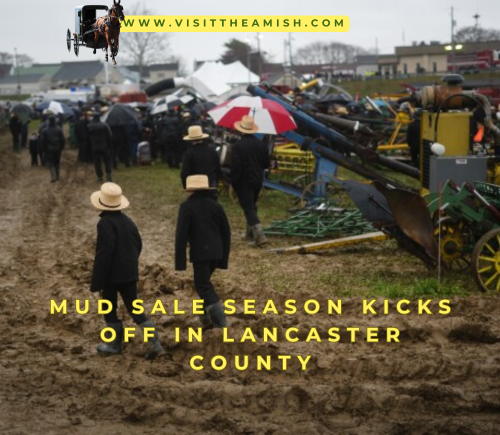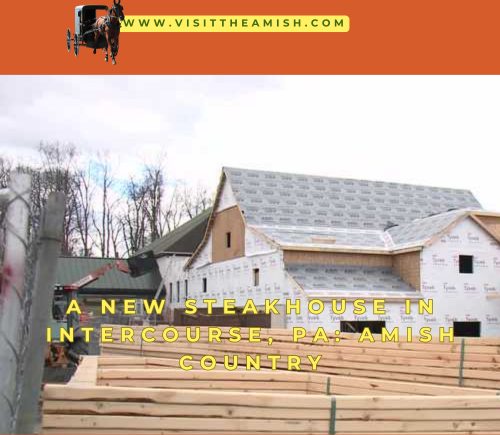New Amish Settlement Brings Traditional Values and Thriving Businesses to Central Pennsylvania
In the rolling hills of central Pennsylvania, a new Amish community is taking root, bringing with it a blend of time-honored traditions and entrepreneurial spirit. The settlement, which began with just a handful of families in early 2024, has now grown to over 20 households, transforming the quiet countryside of Mifflin County.
Local resident Sarah Thompson, 58, expressed her surprise and delight at the new neighbors. “I never thought I’d see so many horse-drawn buggies on our roads, but it’s become a charming part of our daily life here,” she said.
The Amish families, primarily from Lancaster County and Ohio, were drawn to the area’s affordable farmland and relative seclusion. They’ve quickly made their mark on the local economy, opening several businesses that have become popular with both residents and tourists.
One such enterprise is the Peaceful Valley Furniture, run by Eli Yoder. “We saw a need for quality, handcrafted furniture in the area,” Yoder explained. “Our pieces combine traditional Amish craftsmanship with styles that appeal to our English neighbors.”[5]
Another hit with locals is the Bird-in-Hand Bake Shop, operated by the Miller family. Their pies, breads, and famous shoofly cake have become sought-after treats. “I never knew what I was missing until I tasted their peach pie,” raved local teacher John Davis. “It’s simply heavenly.”[5]
The settlement has also opened a small schoolhouse, and plans are underway for a community-run general store. While some residents initially expressed concerns about the cultural differences, most have embraced their new neighbors.
Town Mayor Rebecca Collins sees the Amish arrival as a positive development. “They’ve brought a renewed focus on community and simple living that’s refreshing in today’s fast-paced world,” she noted. “Plus, their businesses are attracting visitors from all over, which is great for our local economy.”
The Amish Business Model: A Recipe for Success
The success of Amish businesses in Mifflin County is not an isolated phenomenon. Across Pennsylvania, Amish small businesses have a remarkably high success rate. While only about 50% of new American small businesses last five years, over 90% of new Amish small businesses survive beyond that mark.
Several factors contribute to this success. The Amish tend to stick to what they know and excel at, focusing on skills they’ve perfected over generations. These include furniture making, carpentry, cooking, and crafts.
Eli Yoder of Peaceful Valley Furniture exemplifies this approach. “Our furniture-making skills have been passed down through generations,” he explains. “We’re not just selling products; we’re sharing a piece of our heritage.”
Another key to Amish business success is their focus on building relationships with customers, employees, and the community. This approach is evident in the way Sarah Miller runs the Bird-in-Hand Bake Shop. “We know most of our customers by name,” she says. “It’s not just about selling baked goods; it’s about being part of the community.”
Challenges and Adaptations
Despite their success, the Amish in Mifflin County face unique challenges. The inability to use electricity in their businesses is a significant hurdle. Some, like Jacob Stoltzfus who runs a small woodworking shop, have found creative solutions. “We use air-powered tools run by large diesel engines,” he explains. “It’s different from what most businesses use, but it gets the job done.”
The Amish have also had to adapt to the demands of the modern business world while maintaining their traditional values. “We’ve had to learn to work with deadlines and manage inventory in ways that are new to us,” admits Anna Yoder, who runs a small quilt-making business. “But we’ve found ways to do it without compromising our beliefs.”

Impact on the Local Economy
The arrival of the Amish community has had a significant impact on Mifflin County’s economy. Local businesses have seen an uptick in customers, drawn by the novelty of the Amish presence and the quality of their goods.
Tom Parker, owner of the Lewistown Inn, has seen a 25% increase in bookings since the Amish arrived. “People are coming from all over to experience our little slice of Amish country,” he says. “It’s been great for business.”
The Amish businesses have also created job opportunities for locals. While the Amish primarily employ family members, some have hired non-Amish workers for certain roles. Mary Johnson, who works at the Bird-in-Hand Bake Shop, says, “Working here has been an eye-opening experience. I’ve learned so much about baking and about the Amish way of life.”
Cultural Exchange and Understanding
The integration of the Amish community into Mifflin County has not been without its challenges. Cultural differences have led to some misunderstandings, but both the Amish and the “English” (as the Amish refer to non-Amish people) have made efforts to bridge the gap.
Local librarian Patricia White has organized a series of cultural exchange events. “We’ve had Amish community members come and share about their lifestyle and beliefs,” she explains. “It’s been fascinating for everyone involved and has really helped foster understanding.”
The Amish, too, have made efforts to engage with the wider community while maintaining their distinct identity. Samuel Lapp, who runs a small produce stand, says, “We may live differently, but we’re all part of the same community. We’re happy to share our ways with our neighbors, just as they’ve been kind enough to welcome us.”
Looking to the Future
As the Amish community in Mifflin County continues to grow, both the Amish and their neighbors are optimistic about the future. Plans are underway for more Amish businesses, including a larger farmer’s market and a leather goods shop.
Mayor Collins is excited about the prospects. “The Amish have brought a new vitality to our county,” she says. “We’re looking forward to seeing how this unique blend of cultures continues to shape our community in the years to come.”
For the Amish themselves, the move to Mifflin County represents not just a new home, but a continuation of their way of life. As Eli Yoder puts it, “We may be far from where we started, but our values remain the same. We’re building not just businesses, but a community that will last for generations.”
As the sun sets over the newly-plowed fields, it’s clear that this unique blending of cultures is just beginning. The Amish of Mifflin County are writing a new chapter in Pennsylvania’s rich history, one buggy ride at a time.
Citations:
[1] https://amishamerica.com/pennsylvania-amish/
[2] https://www.discoverlancaster.com/blog/amish-owned-businesses/
[3] https://www.witf.org/2019/08/26/a-squeeze-and-a-vision-why-some-amish-want-to-leave-lancaster-county/
[4] https://www.discoverlancaster.com/amish/history-beliefs/
[5] https://www.discoverlancaster.com/blog/shopping-in-amish-country-pa/
[6] https://www.pbs.org/newshour/politics/republicans-pursue-support-from-the-amish-in-pennsylvania-where-only-a-small-minority-vote-in-elections
[7] https://www.visitlawrencecounty.com/explore/amish-countryside/
[8] https://bird-in-hand.com/blog/exploring-amish-gift-shops-and-handcrafted-goods-in-lancaster-pa/
[9] https://www.bedlamfarm.com/2021/06/14/the-amish-and-their-long-struggle-with-the-modern-world/
[10] https://www.visitsmicksburg.com/discovering-the-charm-amish-shops-in-pennsylvania/

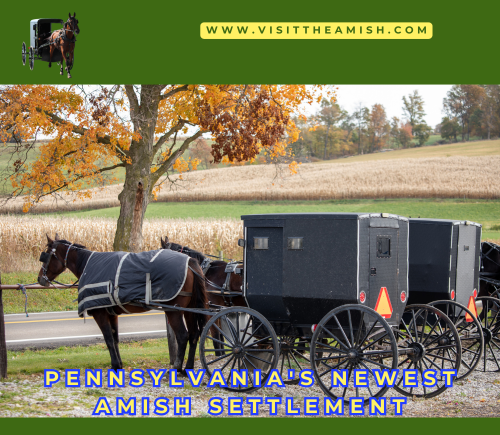
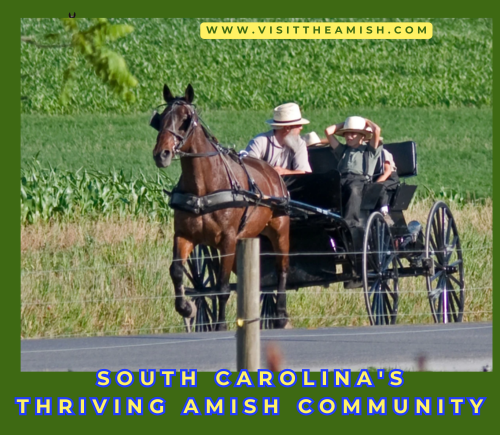



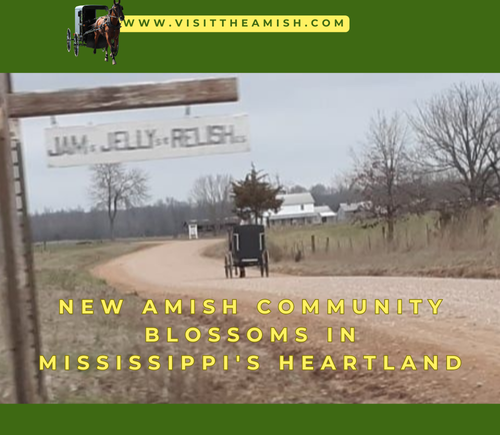
![New Amish Community Blossoms in Mississippi's Heartland
In the rolling hills of northeastern Mississippi, a new Amish community has taken root, bringing with it a blend of traditional values and entrepreneurial spirit. The settlement, located near the town of New Albany in Union County, has been steadily growing since its establishment in early 2024. This expansion marks a significant development for the Amish presence in the Deep South, complementing the existing community in Pontotoc County.
The New Albany Amish settlement, founded by families primarily from Ohio and Indiana, has quickly become an integral part of the local landscape. Despite the challenges posed by Mississippi's hot and humid climate, these resilient settlers have adapted their agricultural practices and lifestyle to thrive in their new home.
John Yoder, one of the first Amish settlers in the area, shared his thoughts on the community's progress: "We've been blessed with good neighbors and fertile land. It's different from back home, but we're learning to grow crops that do well here, like sweet potatoes and peanuts."[1]
The Amish have brought with them a variety of cottage industries and small businesses that have piqued the interest of locals and tourists alike. One of the most popular establishments is the Country Lane Bakery, run by the Miller family. Sarah Miller, known for her mouthwatering pies and breads, said, "We've been overwhelmed by the warm welcome from our English neighbors. They seem to especially love our pecan pies and sourdough bread."[2]
Another thriving business is the Sunrise Furniture Workshop, where skilled craftsmen create high-quality, handmade furniture using traditional woodworking techniques. Samuel Hochstetler, the workshop's owner, explained, "We take pride in our work, using locally sourced wood whenever possible. Our rocking chairs and dining sets have become quite popular."[3]
The community has also established a small general store, Pine Creek Mercantile, which offers a variety of homemade goods, including jams, quilts, and handcrafted toys. Elizabeth Schwartz, who helps run the store, noted, "We're seeing more and more visitors each week. People are curious about our way of life and appreciate the quality of our products."[4]
Local residents have embraced their new neighbors, recognizing the positive impact on the area's economy and cultural diversity. Tom Johnson, a lifelong New Albany resident, remarked, "It's been fascinating to watch the Amish community grow. They're hardworking folks, and their businesses have added a unique charm to our town."[5]
The settlement has not been without its challenges, however. Adapting to Mississippi's climate and agricultural conditions has required some adjustment. Jacob Stoltzfus, who oversees a small dairy operation, shared, "We've had to learn new ways of keeping our cows comfortable in the heat. It's been a learning experience, but we're making progress."[6]
Transportation has also been an issue, with the Amish relying on horse-drawn buggies for their daily commutes. Local authorities have worked with the community to ensure road safety, installing "Horse and Buggy" warning signs and widening shoulders on some roads to accommodate the slow-moving vehicles.
Despite these challenges, the New Albany Amish settlement continues to flourish. The community has already established its own one-room schoolhouse and holds church services in members' homes on a rotating basis. As word spreads about the quality of their goods and services, more tourists are making the journey to experience this slice of Amish life in Mississippi.
The arrival of the Amish has also sparked interest in sustainable living and traditional crafts among local residents. Several workshops on canning, quilting, and woodworking have been organized, fostering cultural exchange and mutual understanding between the Amish and their "English" neighbors.
As the sun sets over the gently rolling hills of Union County, the clip-clop of horse hooves and the distant sound of hymns sung in Pennsylvania Dutch serve as a reminder of the unique cultural tapestry being woven in this corner of Mississippi. The New Albany Amish settlement stands as a testament to the enduring appeal of a simpler way of life, even in the face of modern challenges.
With its blend of traditional values and entrepreneurial spirit, this growing Amish community is carving out a distinct niche in Mississippi's cultural landscape. As more families are expected to join the settlement in the coming years, the future looks bright for this bastion of simplicity in the heart of the Magnolia State.
Citations:
[1] https://amishamerica.com/mississippi-amish/
[2] https://www.onlyinyourstate.com/food/mississippi/stock-up-on-amish-goods-at-the-places-ms
[3] https://goamish.co/pages/horse-barns-in-mississippi
[4] https://magnoliatribune.com/2024/04/01/birthplace-mississippi-to-the-core/
[5] https://www.amish365.com/where-are-the-amish-in-mississippi/
[6] https://amishfurniturems.com
[7] http://bld-in-mt.blogspot.com/2012/07/amish-proverbs.html
[8] http://collections.americanjewisharchives.org/ms/ms0603/ms0603.043.017.pdf
[9] https://amishamerica.com/mississippi-randolph-pontotoc-county/
[10] https://mollyjarabica.wordpress.com/2012/11/04/a-glimpse-inside-the-randolph-miss-amish-community/](https://i0.wp.com/visittheamish.com/wp-content/uploads/2025/01/image-82.png?resize=400%2C287&ssl=1)

